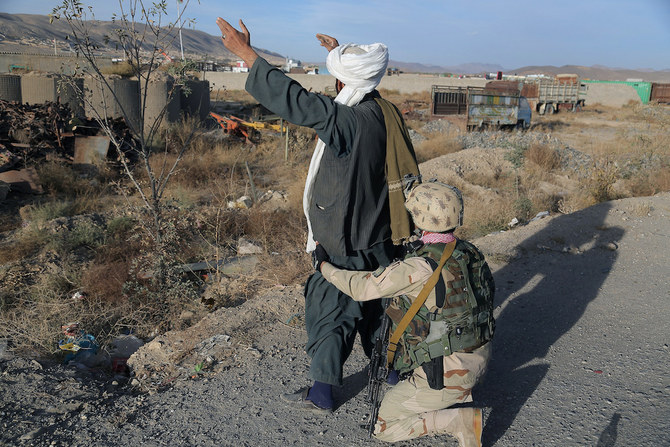
Prime Minister Mahathir earlier said joiningthe ICC would have tno impact on the country"s sovereignty
On Friday, Mahathir backtracked, citing attempts by unnamed parties to undermine his government
KUALA LUMPUR: Malaysia has been condemned for its U-turn on joining the International Criminal Court (ICC).
The government had said that signing the Rome Statute, the treaty that established the ICC, would have no impact on its sovereignty and that it was ready to ratify it.
But on Friday, in a surprise news conference, Prime Minister Mahathir Mohamad said the government was reneging on its decision to join the ICC.
He claimed political maneuvering by certain interest groups had forced the government’s hand.
“The Cabinet made a decision to withdraw our ratification of the Statute of Rome. It is not because it is harmful to the country, but because of politics where people are easily misled by emotional claims that what this government is doing is against our own interest,” Mahathir said.
“I see this as a way to blacken my image. They know they cannot oust me easily, so they have to paint a bleak picture of me.”
The 93-year old leader claimed the politicking was an attempt to undermine the government and his role as prime minister, but did not give further details.
Shahriman Lockman, a senior analyst at the Institute of Strategic and International Studies of Malaysia, expressed his disappointment.
“It would’ve put Malaysia in a stronger moral position to comment on numerous issues that it has long championed: Palestine, Rohingya. This has been a lost opportunity,” he told Arab News.
He said that those people objecting to Malaysia joining the ICC were implying that the country’s leaders would be in the ICC’s crosshairs.
“It is an absolute nonsense to say that it would somehow affect the position of members of the royalty, by virtue of them being ceremonial heads of the Malaysian Armed Forces and their constituent units. Ceremonial heads are precisely that — ceremonial.”
The decision to withdraw from the ICC by the Pakatan Harapan leadership represents another setback for rights in Malaysia.
It repealed the mandatory death penalty, rather than scrapping capital punishment entirely, and also withdrew from ratifying the International Convention on the Elimination of Racial Discrimination.
Lockman said the government’s latest about-turn could affect its reputation.
“Yes, it would call into question Malaysia’s consistency and ability to keep its word. We have done U-turns on various commitments that we previously made to the international community.”
Shamini Darshni Kaliemuthu, executive director of Amnesty International Malaysia, said the country had turned its back on the commitment toward ratifying the Rome Statute despite assuring the international community it was committed to combating international crimes for global peace and security.
“Malaysia must reverse its decision and honor its accession to the Rome Statute. As Malaysia had previously said, the ICC is the only avenue for justice for the millions of victims of international crimes,” Kaliemuthu said.
The ICC serves as a global justice system against the most serious offenses such as genocide and war crimes.
If Malaysia follows through on its decision it would join other countries including the US, China, Russia, Qatar, Israel, and the Philippines that are not part of the ICC.












